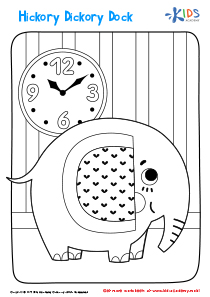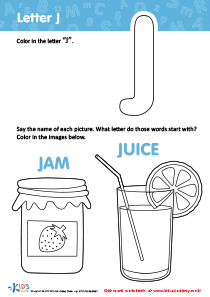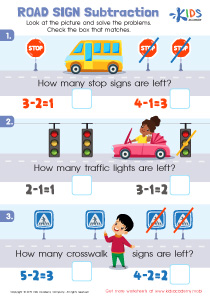4 and 5 Quizzes for 5-Year-Olds
3 results
3 filtered results
Clear all filters3 filtered results
-
From - To
Introducing our vibrant collection of interactive assessment quizzes, meticulously designed for 5-Year-Olds, focusing on the magical numbers 4 and 5! Perfect for curious young minds, these quizzes not only evaluate their understanding of these foundational numbers but also offer immediate, constructive feedback to bolster their learning journey. Tailored to captivate the attention of 5-Year-Olds, these quizzes blend fun with education, ensuring a delightful learning experience. Dive into our engaging quizzes and watch your child master the concepts of 4 and 5 with confidence and joy! Ideal for reinforcing knowledge and encouraging a love for learning from an early age.
Interactive quizzes designed for children in the 4 and 5 age bracket, especially tailored for 5-year-olds, are not just another educational tool; they are a vibrant and engaging way to enhance the learning experience for young minds. At this tender age, children are at a crucial stage of development where their cognitive abilities, like memory, problem-solving, and understanding of concepts, are expanding rapidly. Incorporating interactive quizzes into their learning routine can significantly boost these skills, making the process both effective and enjoyable.
Why Interactive Quizzes are Beneficial for 5-Year-Olds
-
Enhanced Engagement: Children aged 4 and 5 have a natural curiosity and a desire to explore and interact with the world around them. Interactive quizzes cater to this innate curiosity by offering a hands-on learning experience. They turn abstract concepts into tangible challenges that children can engage with directly, which keeps them interested and focused on the task at hand.
-
Learning Through Play: For 5-year-olds, play is not just a form of entertainment; it's a critical mode of learning. Interactive quizzes make learning feel like play, which is incredibly effective for this age group. By framing educational content in a playful context, children are more likely to absorb and retain information without the process feeling laborious.
-
Instant Feedback: One of the great advantages of interactive quizzes is the immediate feedback they provide. This instant response to their answers helps children understand where they went right or where they need improvement. Such feedback is crucial for reinforcing learning and encouraging self-improvement in a positive and supportive environment.
-
Adaptability: Interactive quizzes for 4 and 5 for 5-year-olds are designed with the understanding that every child is unique, with their own pace and style of learning. These quizzes often come with adjustable difficulty levels, ensuring that the content remains challenging but not overwhelming. This adaptability helps in catering to the individual needs of each child, promoting a personalized learning experience.
-
Development of Computer Literacy: In today’s digital age, computer literacy is a skill that children need to develop from an early age. Interactive quizzes introduce young learners to technology in a controlled and purposeful manner, helping them navigate and interact with digital interfaces. This early exposure can set the foundation for more complex technological interactions in the future.
-
Social Skills and Cooperation: Although interactive quizzes can be undertaken individually, they also offer opportunities for collaborative learning. Children can work in pairs or small groups to solve problems, encouraging communication, patience, and teamwork. These social skills are as crucial as academic achievements in the holistic development of a child.
In summary, interactive quizzes for 4 and 5 for 5-year-olds are much more than a simple educational tool; they are a bridge to a comprehensive learning experience that caters to the developmental needs of young children. By integrating these quizzes into the educational routine of a child, parents and educators can provide a fun, engaging, and effective learning methodology that not only builds academic skills but also critical life skills.












